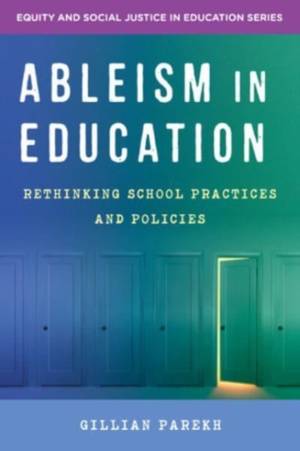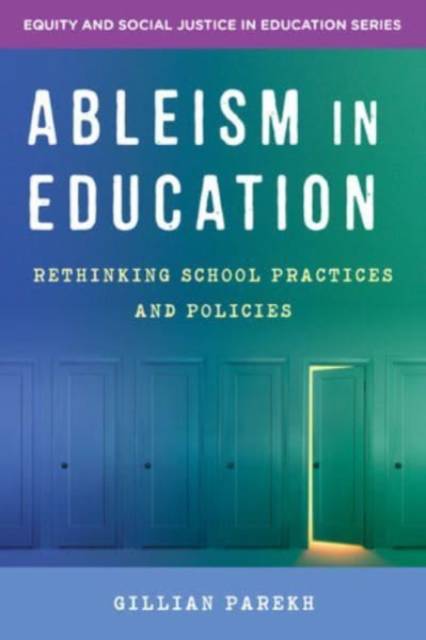
Bedankt voor het vertrouwen het afgelopen jaar! Om jou te bedanken bieden we GRATIS verzending (in België) aan op alles gedurende de hele maand januari.
- Afhalen na 1 uur in een winkel met voorraad
- In januari gratis thuislevering in België
- Ruim aanbod met 7 miljoen producten
Bedankt voor het vertrouwen het afgelopen jaar! Om jou te bedanken bieden we GRATIS verzending (in België) aan op alles gedurende de hele maand januari.
- Afhalen na 1 uur in een winkel met voorraad
- In januari gratis thuislevering in België
- Ruim aanbod met 7 miljoen producten
Zoeken
Omschrijving
Ability is so central to schooling--where we explicitly and continuously shape, assess, measure, and report on students' abilities--that ability-based decisions often appear logical and natural. However, how schools respond to ability results in very real, lifelong social and economic consequences. Special education and academic streaming (or tracking) are two of the most prominent ability-based strategies public schools use to organize student learning. Both have had a long and complicated relationship with gender, race, and class.
In this down-to-earth guide, Dr. Gillian Parekh unpacks the realities of how ability and disability play out within schooling, including insights from students, teachers, and administrators about the barriers faced by students on the basis of ability. From the challenges with ability testing to gifted programs to the disability rights movement, Parekh shows how ableism is inextricably linked to other forms of bias. Her book is a powerful tool for educators committed to justice-seeking practices in schools.
In this down-to-earth guide, Dr. Gillian Parekh unpacks the realities of how ability and disability play out within schooling, including insights from students, teachers, and administrators about the barriers faced by students on the basis of ability. From the challenges with ability testing to gifted programs to the disability rights movement, Parekh shows how ableism is inextricably linked to other forms of bias. Her book is a powerful tool for educators committed to justice-seeking practices in schools.
Specificaties
Betrokkenen
- Auteur(s):
- Uitgeverij:
Inhoud
- Aantal bladzijden:
- 208
- Taal:
- Engels
- Reeks:
Eigenschappen
- Productcode (EAN):
- 9781324016793
- Verschijningsdatum:
- 10/05/2022
- Uitvoering:
- Paperback
- Formaat:
- Trade paperback (VS)
- Afmetingen:
- 145 mm x 221 mm
- Gewicht:
- 322 g

Alleen bij Standaard Boekhandel
+ 67 punten op je klantenkaart van Standaard Boekhandel
Beoordelingen
We publiceren alleen reviews die voldoen aan de voorwaarden voor reviews. Bekijk onze voorwaarden voor reviews.









